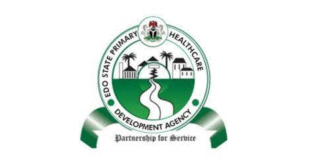Introduction to the Quality Healthcare and Patient Safety Bill, 2025
A significant legislative development has emerged in the healthcare sector with the introduction of the Quality Healthcare and Patient Safety Bill, 2025. This bill, which has recently received Cabinet approval, is designed to bring about comprehensive reforms within the country’s healthcare system. It represents a crucial part of broader legislative efforts aimed at strengthening Universal Health Coverage (UHC) under the overarching framework of the Bottom-Up Economic Transformation.
The proposed legislation marks a pivotal step in addressing long-standing issues within the health sector, such as systemic failures, entrenched malpractice, and regulatory weaknesses. These challenges have had a profound impact on patient safety and public confidence in the healthcare system. The Cabinet has highlighted that the absence of clear standards, combined with weak oversight and collusion among various stakeholders, has left patients vulnerable and the system largely unaccountable.
Key Objectives of the Bill
One of the primary goals of the Bill is to eliminate widespread fraud, close regulatory loopholes, and address conflicts of interest that have enabled unqualified and unregulated facilities to operate without consequences. By doing so, the government aims to restore trust and ensure that all healthcare providers adhere to stringent quality and safety standards.
The legislation introduces a unified quality assurance framework, along with mandatory licensing, registration, and accreditation requirements for all healthcare providers, including hospitals, diagnostic laboratories, and ambulance services. This initiative seeks to establish a more transparent and accountable system across the board.
Establishment of a Regulatory Authority
Central to these reforms is the creation of a powerful, independent Quality Healthcare and Patient Safety Authority. This body will be tasked with enforcing national care standards, monitoring healthcare performance, and overseeing the implementation of quality improvement initiatives at the facility level. The authority will play a critical role in ensuring that all healthcare services meet the required benchmarks for safety and effectiveness.
In addition to this, the Bill emphasizes the protection of patients’ rights by codifying minimum service standards and establishing clear protocols for emergency medical services. These measures are intended to ensure that patients receive timely and appropriate care, regardless of their location or socioeconomic status.
Alignment with UHC Pillars
The government views the passage of this Bill as a foundational move toward achieving universal health coverage while ensuring that services are both safe and effective. By addressing the root causes of corruption and inefficiency in the health system, the government hopes to usher in a new era characterized by transparency, accountability, and patient-centered care.
The Bill was first introduced during a stakeholder consultative forum chaired by Health Cabinet Secretary Aden Duale in Nairobi mid-last month. Its approval now paves the way for its formal tabling in parliament, signaling a significant milestone in the legislative process.
Duale noted that the Bill aligns with five core UHC pillars already underway. These include:
- A fully publicly financed primary healthcare system
- Integration of ICT and telemedicine
- Protection of health funds through collaboration with the National Treasury and county governments
- Creation of an Emergency Medical Treatment Fund
- Provision of Social Health Insurance for all
Additional Provisions
The Bill also proposes the establishment of a unified Healthcare Tribunal to resolve disputes involving patients, healthcare professionals, and providers. This initiative aims to improve access to justice, strengthen accountability, and regulate emerging services, such as medical aesthetic procedures, under the same quality and safety standards as traditional healthcare.
By implementing these measures, the government is taking a proactive approach to ensure that the healthcare system is not only efficient but also equitable and responsive to the needs of all citizens. The Quality Healthcare and Patient Safety Bill, 2025, represents a bold step forward in the quest for a more robust and reliable healthcare system.
 Info Malang Raya Its All About World News
Info Malang Raya Its All About World News


